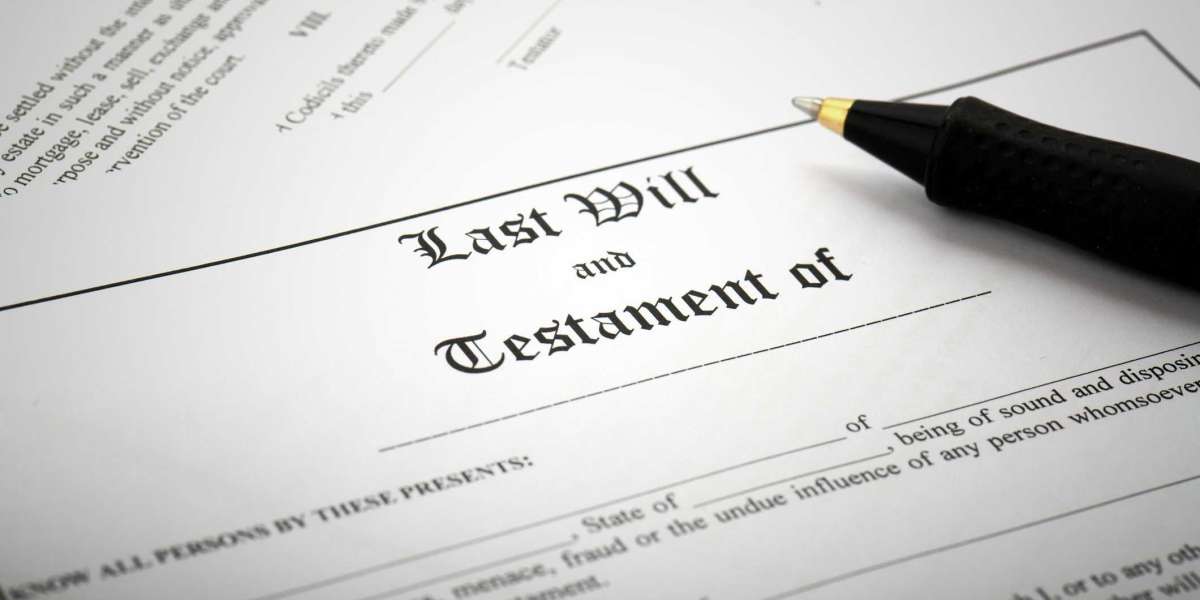Eighty-eight percent of seniors say they intend to leave a financial legacy to the next generation in their family.
Are you interested in ensuring the long-term viability of your estate? Creating a will is one of the most effective methods of accomplishing this, but it can be difficult if you've never done so before; where do you begin?
What is the procedure, and how do you go about making it legal? These are just a few of the questions that have been raised.
Even though you may believe that a will is simply a document stating who will receive your assets after you pass away, the process entails much more than that, and includes the following activities:
Executors and power of attorneys in estate planning and probate proceedings
To help you understand the process, we've compiled a comprehensive guide that covers everything from wills to probate to estate planning and the creation of your last will and testament (LAST WILL AND testament). When you're ready to begin putting together your will, you can also take advantage of our free will kit, which has been approved by the courts. #
What exactly is a will?
It is important to understand that your will is a legal document that outlines how you would like your assets to be distributed after you pass away, which may include your home, money, and personal belongings.
Having a will that is clear, legally valid, and up to date will ensure that your assets are protected and distributed in the manner in which you wish them to be distributed.
A will informs your loved ones of the individuals you intended to be your beneficiaries, which can help to avoid disagreements over the distribution of your property and possessions (also known as your 'estate') after your death. Your beneficiaries – as well as your attorney – will then be aware of who you intended to serve as your executor, which is the person or organization in charge of administering your estate after your death.
It will also provide for any minor children under the age of 18 who are in your custody at the time of your death.
As your personal situation changes throughout your lifetime, such as the addition of children, grandchildren, or spouses to your family, your will must be updated to reflect your wishes regarding the changes that have occurred as a result of these developments. Keeping your will up to date is essential if you want to ensure that there is no confusion about how your estate should be distributed after you pass away when you die.
What is the purpose of a last will and testament?
You will update your will as necessary throughout your life, and your last will and testament will be the most recent legal document you executed before your death, which will be signed by your legal representative. It essentially nullifies any previous wills and testaments that you may have made.
All previous versions of your will that have been created are discarded by the court unless you are contesting a will on the grounds of undue influence in which case they are retained. Also worth noting is that a will does not expire unless and until a more recent will has been witnessed and signed by a notary public.
59 percent of Australians have a strong sense of purpose.
Australians expect to make a will at some point in the future, with 22% planning to do so.
Almost one-fifth of Australians do not have a will and do not intend to create one in the near future.
Public Trustee and Guardian is the source of this information.
Everything else about a last will and testament is identical to a will: it is the legal document through which you designate the individuals or organizations who will be entitled to your assets or possessions after your death. These individuals and organizations are referred to as the beneficiaries of your last will and testament in most circles.
You can also name an Executor, who will be responsible for the proper administration of your estate and the distribution of your assets to your intended beneficiaries, according to the provisions of your last will and testament. The Executor may be a private individual or a public organization.
Following your death, the person or entity you have designated to be your Executor petitions the court to be appointed as the Executor of your estate, which is granted. After being appointed, the Executor is in charge of managing your estate's financial affairs and ensuring that your property is distributed in accordance with your wishes as expressed in your last will and testament, among other responsibilities.
Making a will is a time-consuming process.
If your circumstances are straightforward, you can create a standard will online by following the steps outlined here.
However, if your circumstances are more complicated, you should consult with an attorney who will draft your will on your behalf.
WHEN AND HOW TO MAKE A WILL
1. Determine the value of your assets.
Take, for example, whether or not you own your home. Do you have access to a vehicle? Etc.
2. Make a decision on how you want your assets to be distributed.
3. Get started on your writing.
Introduction. Mark this document as your 'Last Will and Testament,' or something similar (when you update your will you will still identify all future iterations as the Last Will Testament). Clearly state that you are over the age of eighteen (18) and mentally competent, and that you are not acting under duress, in addition to your full name and address.
Make a decision on who will be the executor. In this section, you designate who you would like to serve as executor of your estate.
Identify the people who will benefit from your work. Make a clear list of the people who will be beneficiaries of your estate so that there is no confusion about who is who.
If you have children under the age of 18 or dependents, you must designate a guardian. If you have minor children or dependents in your care, you should make provisions in your will for who you would like to be the guardian of those children or dependents. It is possible to specify a second living parent if there is one; however, it is also possible to specify an additional person in the event that both parents pass away or become unable to care for the dependents.
Divide your assets among your family members. Make a bequest of each asset in your estate to the person or people you wish to receive it. However, even if you prefer to divide your estate into percentages, for example, leaving 50% to a spouse and 25% to each of two children, you should still make a thorough inventory of each asset.
Sign your will clearly, and have two qualified witnesses witness your signing – they will be required to sign the document as proof of its validity if it is found to be invalid. They cannot be beneficiaries, and they must be over the age of 18 in order to be eligible.



